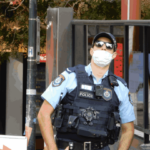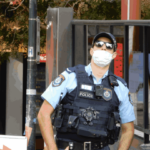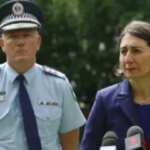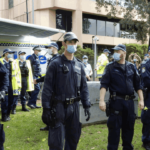NSW Government Suspends Payment of Outstanding COVID-19 Fines
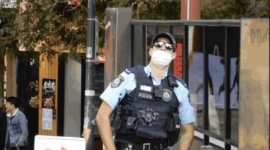
If you have been issued with a Covid-19 penalty notice that remains unpaid, or you have already paid an unlawfully issued fine, the good news is that all outstanding fines are on hold for the time being, and you can apply to the Supreme Court of New South Wales to bring the state government and its agencies to account over their unlawful conduct.
It is a ruling that makes clear the rule of law – the fundamental principle that everyone including the government and its agencies must abide by the law – remains in force in our state, and government agencies cannot flout the law in an attempt to unlawfully fill their coffers, without legal repercussions.
Supreme Court judgement
A NSW Supreme Court ruling earlier this month determined that penalty notices for the offence of failing to comply with a public health order – also known as Covid fines – which failed to properly spell out an alleged offence are invalid, opening the floodgates for anyone issued with fines which insufficiently particularise the offence to seek declaratory relief, together with associated legal costs.
An earlier decision which made similar findings led to Revenue NSW withdrawing tens of thousands of fines, but the agency responsible for filling the coffers of the state government is now in damage control – with civil law firms drooling over a potential class action which could lead to tens of millions of dollars in claims.
NSW Supreme Court decision
The NSW Supreme Court’s decision noted it was imperative that any offence was clearly and unambiguously specified in penalty notices – a minimum requirement under NSW laws.
Without such detail and clarity, recipients are not able to ascertain what offence they were alleged to have committed nor are they able to make a decision whether or not to dispute the offence.
Now, court registries are being directed to adjourn any Covid breach matter until after 8 May 2023, to allow time for additional legal advice to be obtained.
It could mean that tens of thousands of fines will be affected.
Covid-19 fines were controversial from the start
Covid-19 infringement notices were controversial from the moment they were introduced in March 2020 with a lot of discussion around the NSW Government’s and the NSW Police’s combined efforts to attempt to “fine their way out of a health crisis,” especially during a time when a lot of people were already under duress.
There was also a lot of confusion about the seemingly adhoc way in which fines were determined and issued by NSW police under the ever-changing pandemic Emergency Public Health regulations which were in force in 2020 and 2021.
Certainly the New South Wales Government coffers benefited very nicely from Covid fines that were not disputed and paid on time. In the first four months of lockdowns and border closures, state and territory governments combined collected more than $5 million – a figure that only ballooned over time, particularly at the height of the pandemic when fines were increased.
Damage done
Late last year, Revenue NSW was forced to cancel approximately 33,000 ‘Covid fines’, – representing about half of the total number issued by police for breaches of the public health orders during pandemic restrictions in 2020 and 2021. The fines were worth about $30 million.
Following that announcement, it was discovered that 929 people had been placed on work orders for Covid fines which were subsequently found to be invalid.These people were placed work and development orders (WDOs), a voluntary process that uses work or participation in training or counselling to reduce a fine amount. Collectively, they were working off a total of $929,000 in now-withdrawn fines, an average of $1,000 each.
According to reports, the recent NSW Supreme Court ruling has put into question the validity of a further 29,000 fines.
There are now calls for the NSW Government to withdraw all remaining fines, or face multiple lawsuits or perhaps even a class action by people unlawfully issued with Covid fines – whether or not those fine have been paid.
However the Government’s next move is unclear, although the NSW police force has said it is taking the NSW Supreme Court’s decision under consideration.
As has often been said in recent months, in hindsight many of the radical and rash decisions that governments around the world made during the pandemic were not necessarily in the best interests of anyone. A report undertaken by the University of NSW, published earlier this year highlights that policing the pandemic didn’t work. It highlights the significant negative effects of Covid-19 fines.
Negative impacts of ‘heavy-handed’ pandemic management
And as time goes on and more information comes to light, it is easy to criticise the approach to pandemic management but we are now beginning to see the longer-term effects of ill-thought out rules and regulations and penalties.
Many businesses are still struggling to recover from lengthy shut downs, and the economy is slow to recover.
Another issue of concern is that of vaccine injury, which is a Federal Government matter that needs urgent attention. While the percentage of people overall who suffered adverse side-effects from the Covid vaccines is small, these people deserve acknowledgement and compensation.
And, let’s not forget that the people who tried to push for alternative approaches, as well as less rushed, less authoritarian responses to Covid-19 were ostracised and in many cases ridiculed, too.


